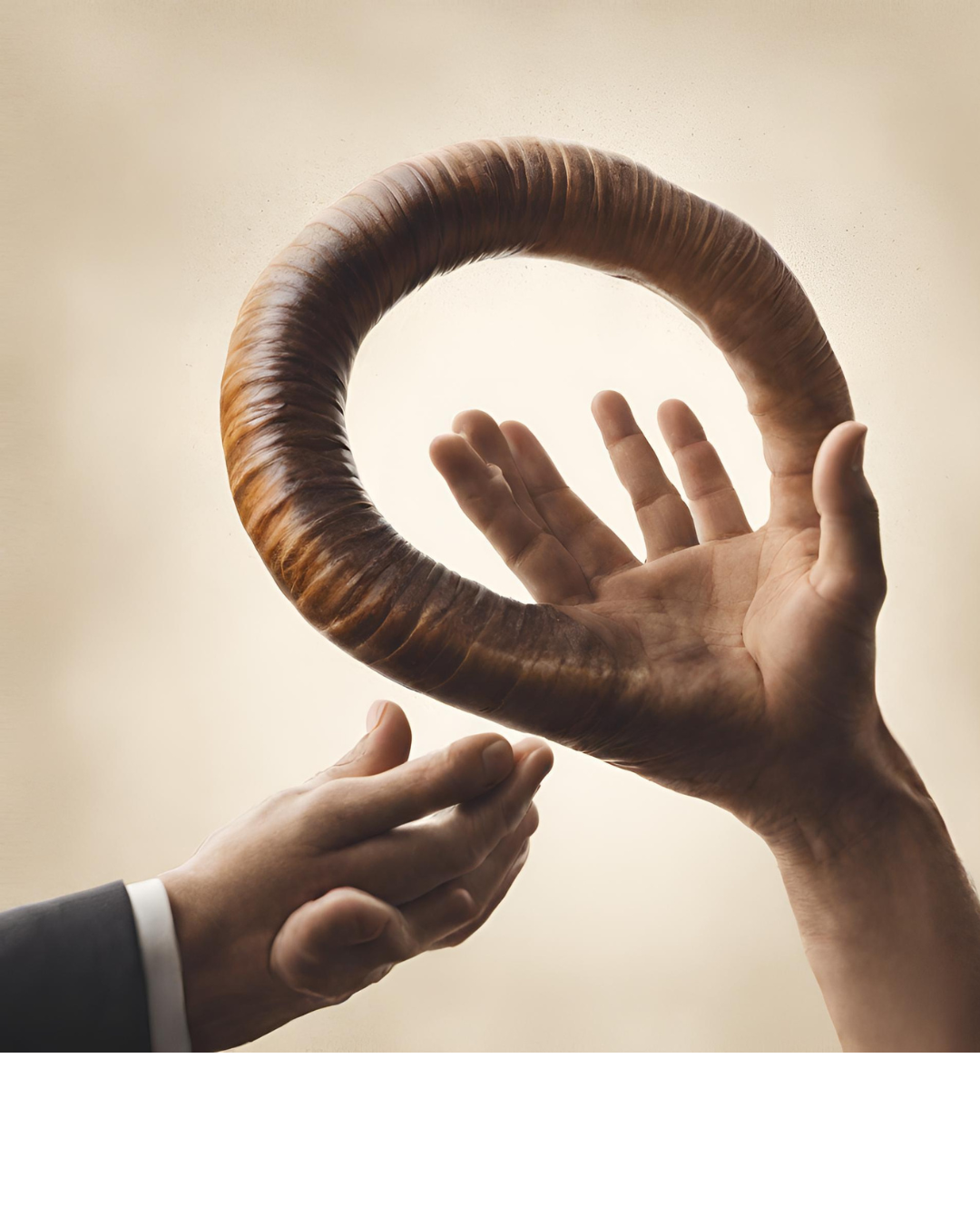Episode Transcript
[00:00:00] Sometimes you might feel that you're stuck in a difficult, uncertain situation, like you've hit a dead end and everything under you is falling. And it's difficult to continue in your shlichas, in your role to play in this world.
[00:00:15] And you turn to Hashem and you say, hashem, you know, take me out of this difficult situation. I have a better idea of how my life could be right now. And you think to yourself, if only I would get out of this difficult situation, then it'd be much easier for me to be able to serve in all areas of my YiddiShkite. And in a way, this is what Moshe Rabbeinu, the end of last week's sedra, ends up saying to Hashem he was sent on a mission by Hashem to go to Pari and to ask him to let the Yiddan out, let the Jews out. And in return, Moshe Rabbeinu ends up making it harder for the jewish people. Pari says, I'm going to make it now more difficult. They have to collect their own straw to build bricks. Previously, Pari would give them the bricks to be able to build, and now they would have to go make their own bricks. So Moshe Rabbeinu goes to Hashem and says, hashem, you've made it more difficult. Why have you made life so difficult? Why did you stem? You've only made it harder for them. At the beginning of this week's parasha, Hashem answers back to Moshe Rabbeinu. Hashem says, as explained by Rashi, that it's a shame that the avos aren't around. In other words, that you aren't like them. Moshe Rabbeinu isn't like the avos. What was Moshe Rabbeinu missing? On one hand, of course, Moshe Rabbeinu, as a trusted leader of Israel, he had to complain and plead on behalf of the jewish people. Hashem says, this isn't what the obvious did. There's a different reality going on.
[00:01:49] And as individual, how are you supposed to feel when a person goes through hardship? You're supposed to make the most of it. Take every day of pain and understand this is what's building me, that this pain and challenge is the key to me becoming greater. Yeah. Feel the pain of what you're going through, not just to smile and say, yeah, gums of the tova, but to feel it. Understand this is what's being demanded of me right now. These struggles is what's going to build me. This is the purpose. There's purpose in this.
[00:02:20] Hashem was answering and saying, gamani Shamaki, I know what's going on, but there's a need for mitzrime. It's exactly what they're going through is what's going to bring them out. You think I made it worse by making them find their own bricks? Complete opposite. The more pain that they're going through is what's going to get them out. The fact that it's even more unbearable is what's going to get them out. This is what's going to build them. This is what's going to build their relationship with me.
[00:02:48] That was Hashem's answer. The goal wasn't the redemption and the suffering is what we have to get rid of. Rather, it was the suffering itself that was going to build them in order to be able to leave.
[00:03:02] As we talk around Pesach time, what was going on was they were being ripped out of the Ulamhagashmi, of the physical world. They're being taken out of egyptian culture. That pain is what was building them into becoming clay Yisrael into becoming different, into becoming greater.
[00:03:20] And therefore, Hasham is saying, never lose sight of the fact that I know what I'm doing in every moment. And every bit of pain that you're going through is what's going to build the gullah. And therefore, a person shouldn't say it shouldn't have happened. It's not fair. You can say it's unbearable, can cry over everything, but grow from it, understand there's a reason, and this is what's going to build you. One day we will find out every small thing, turn us into great people that we will be. But what the jew is, this is how we live.
[00:03:49] When a person says gamzu, it's with tears, with deep felt pain, but not with a smile. Knowing that everything Hashem does is good and will bring us closer to who we're meant to be, to be the jewish nation, shining in the way that it should be. All the pain and suffering of the jewish people, what we have been through and we are going through, as painful as it is, and all the tears that it brings up and all the emotions that it brings up, deep down, we understand this is all part of a deeper purpose that bring us closer to shining the way that we are supposed to be as Yisrael. There's an incredible story of the Lebavature Rebbe. The Rebbe Riat, the previous Lebavature Rebbe, who once asked one of his Avreichim to go and live in a city where there was a large amount of Jews, but very, very little Yiddishkite. There was no school. There was no kashuas. And the Avrah said, I don't want to go to such a place. It's such a dark place. There's no Rukhnes, there's no spirituality. I'm not going to be able to build my family over there. It's going to be so difficult for me. And the rebbe says back to him, I want you to listen to this. The Nishama had to come down to this world. The Nishama never wanted to. And it know up then the world above Olemet Helyonim, there's so much light and down in this world, so dark, and it's so cold. And Hashem says to the Neshama, you need to go down to this world until haze. And your job is to bring light into a dark place, to light up this world and to bring that war. And the rebbe turned to this Avrah, and he said, your job is to go to this city, which has until now been so dark, there's been no light. And you can bring Ruchnius and warmth into this city through the light that you bring to this place. I think, isn't that really sometimes the story of our lives, that we find ourselves in dark places where we want to throw in the towel, it's difficult to continue. We want to give up hope, and we find ourselves so cold, it's so difficult for us to move on. We just want to escape from our responsibilities, escape from what we need to do. And we feel like it's so dark, it's so difficult.
[00:05:56] A person just wants to forget sometimes.
[00:05:59] But this story reminds us, Hashem tells Moshe Rabbeinu, you were sent down here on a mission down into this world. And exactly in the place that you have been put, that is where I have sent you to bring light into that dark place. And Moshe Rabbeinu was afraid. He was scared. And Hashem said, no, understand, this is the place where you stand and remind yourself that you are a personal messenger of Baruch Hu. Each and every one of us are a personal messenger of Hashem to bring light into this world, to bring a dear Bataktoinim, to be someone that brings the infinite light of Hashem through us down into this world. And exactly in the place that we are standing, and we're not sure how we can move on. It's stand there and bring light into that place. We understand Hashem is all good, all loving or caring. Hashem knows what is good for us and bringing us closer to be the people that we're meant to be. To be the jewish nation that we're meant to be. And by us bringing light through our actions and through ourselves, we should bring the world together to the place that it's meant to be in the world. Good shabbos.


